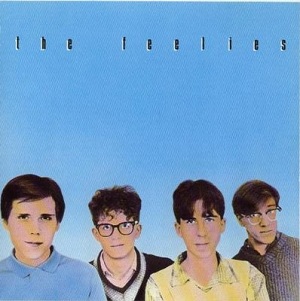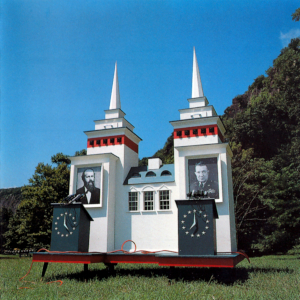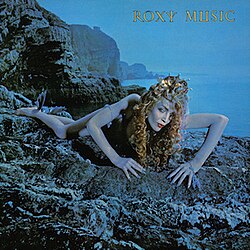Last week, HBO released Yacht Rock: a DOCKumentary (their capitalization) that both celebrates and snickers at the smooth, sophisticated pop music that was big in the late 70s and early 80s. After a 2005 mockumentary web series, titled Yacht Rock, this Grammy-winning but critically disliked music has become ironically (and non-ironically) appreciated, and its creators like Toto, Christopher Cross, Kenny Loggins, and Michael McDonald have seen their careers revilitalized, as they play to younger, hipper audiences.
Honestly, I find this all very silly. Here are millennial audiences singing along to the bellowing romantic tribulations of guys who look like they sell radios instead of playing on them. The music itself, all by LA’s most seasoned studio pros, is as immaculate as any ever recorded, and, to these distortion-damaged ears, slickly lifeless.
I find that yacht rock is funky without funk, jazzish but not jazzy, and rock that’s so soft it has no business being compared to rocks. It’s not even talc. In the documentary, the musicians reveal that while they were influenced by Philly soul, R&B, and jazz, they sanded down all of its sharp edges to cater to audience tastes and to attract the largest listenership possible.
For the record, though, while I may not care for the music, I did think the doc makes its purveyors seem like gosh darn nice guys. McDonald, et. al. survived and thrived through the coke-iest time in entertainment history, but they now seem like groovy uncles. It helps that they’ve embraced their new (not entirely positive) designation as yacht rockers.
But I think the overriding appeal of yacht rock has to do with something else. Like all pop stars, yacht rockers have a core fanbase of contemporaries and people slightly younger. Chris Rock once said your favorite music will always be what you were listening to when you started getting laid. That explains why 65-year-olds continue to dig it, but not 35-year-olds. Yet, I think it’s the same impulse that drives this younger audience to Michael McDonald concerts in 2024: nostalgia.
We experience music in a very different way today than we did in the 1990s. Cellphones, airpods, and the slow death of terrestrial radio have atomized listening habits. Taylor Swift is wrapping up Eras, the best-selling concert tour of all time, but if you put a gun to my head, I couldn’t tell you three of her songs, let alone their melodies. That’s not true of McDonald, whose “What a Fool Believes”, “Takin’ it to the Streets” and “Yah Mo B There” are apparently part of my DNA despite being released years before I was alive and not being something I would’ve sought out on my own. I didn’t have to seek out this music, it has been with me all along.
In the doc, a talking head compares yacht rock to aural wallpaper, and that’s how I, and many in my millennial cohort, experienced it. In the 1990s, yacht rock was in the air like oxygen, water vapor, and chlorofluorocarbons. It was an auditory vasodilator in dentist offices, supermarkets, and TV commercials. It was seemingly everyone’s music and nobody’s, the Community Chest and Free Parking of music. It was a way to fill silence in public spaces as inoffensively as possible.
And I think it’s that nostalgia that these millennial fans are chasing. Instead of using Toto’s “Rosanna” it to jumpstart ten minutes of middle-aged, missionary sex, these younger (but still middle aged people, ouch) are using it to remind themselves of a time when they didn’t have kids, mortgages, and student debt; when the worst environmental disaster was the hole in the ozone, not impending climate collapse; when the world wasn’t constantly ending on their phone, and the internet wasn’t cancelling or not cancelling their favorite or least favorite celebrities. It reminds them of being bored in the lobby of a community rec center waiting for their mom to pick them up.
In 2022, Pitchfork published “The Rise of Dissociation Music,” about a wave of singers who are intentionally flattening their vocal expressiveness as a response to the seemingly harrowing world around them. “Do everything and feel nothing,” Dry Cleaning’s Florence Shaw deadpans over a post punk groove on “Scratchcard Lanyard.”
In 2014, Patton Oswalt described being “peacefully, effortlessly, joyously suicidal” while perusing the frozen food aisle when Toto’s “Africa” started playing over the supermarket broadcasting system. If he had a gun, he jokes, he would blown his head off “in one smooth motion” and the resulting scene itself would function as a perfectly understandable suicide note.
I think younger people celebrate yacht rock in an era when they want to zone out because of its triviality. Yacht rock doesn’t engage the upper brain functions. It isn’t political, progressive, or challenging. It’s perfectly recorded, perfectly played music about men who are lonely, but not scary, and Kilimanjaro rising “like Olympus above the Serengeti,” which isn’t geographically correct, but whatever. It’s not joyous. It’s not despondent. It’s a relief. It’s the soundtrack to going to the dentist and not having any cavities.
https://pitchfork.com/features/overtones/the-rise-of-dissociation-music/
Patton Oswalt – Tragedy Plus Comedy Equals Time – Supermarket Depression
But these Heck Records are about albums we either like, or, at the very least, think are interesting, and I don’t feel that way about any Doobie Brothers or Christopher Cross albums. So today’s record is one that’s hotly contested as a yacht rock record, Steely Dan’s Aja.
Yacht rock fans argue that not only is Aja a yacht rock record, it’s the best yacht rock record. And, besides, it has yacht rock saint McDonald on background vocals, so by transitive property alone it’s a yacht rock album.
Fans of the Dan, however, generally want nothing to do with that designation. (Or any categorization that lumps them in with Cross.) And when asked to comment on the genre of “yacht rock,” the surviving member of the Dan duo, Donald Fagen, told the documentary’s narrator, to – SPOILER – fuck himself, before hanging up.
While I generally don’t like yacht rock, and generally do like Steely Dan, I don’t care either way if they’re yacht rock or not.
But Aja has something going for it that, for instance, Toto IV does not. While both records have an immaculate sound that combines jazz, pop, R&B, and rock, Aja got its first.
It’s also not for nothing that the yacht rock guys seem really nice, whereas Steely Dan’s Fagen and Walter Becker seemed like assholes.







